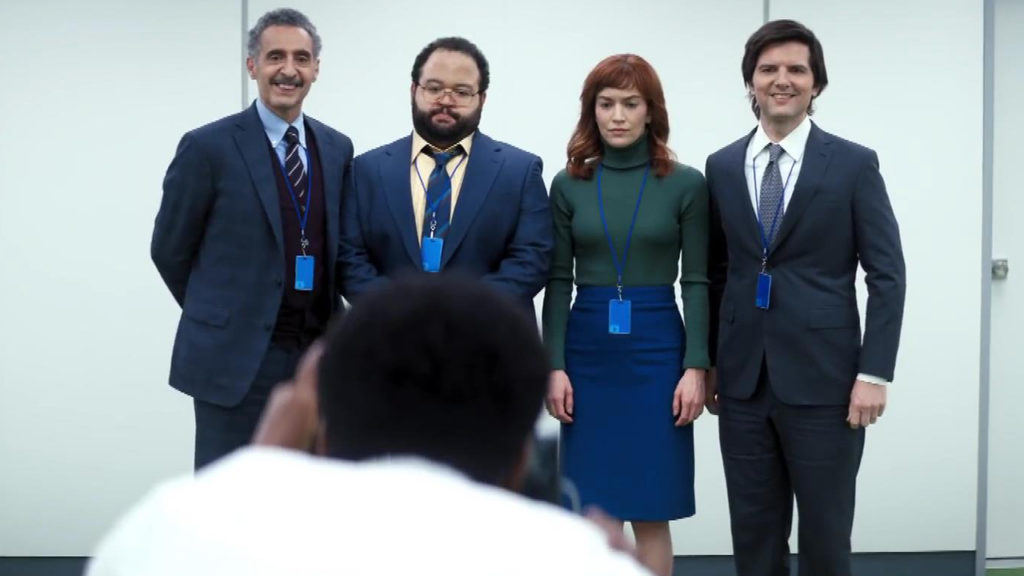(or The Reintegration of an Innie & Outie to Find The We We Are)
One of the beauties of Severance, like all notable television, is that it works on multiple levels.
You have the Apple show’s conceit: In a not-too-distant future, we will be able to manipulate, separate and even erase unpleasant memories. Severance imagines an America where the work self has no contact with or knowledge of the home self. It ponders what Americans — and corporate America — would do with that chasm. Think Eternal Sunshine of the Spotless Mind meets The Office, as filmed by Stanley Kubrick.
But the show works on just about any parallel it’s mapped onto: workplace politics; sexual politics; politics politics. Consider some of the subtler messaging:
- Red and Blue political leanings. Note the use of reds in the workplace, which is a corporate wet dream of labor exploitation and capitalism unbridled. Blues dominate the outside world, where men are neutered, women are masculinized and dominant — and both have become comatose in Wokeness.
- Unionizing. The workplace ”innies”, who know nothing of colleagues beyond their cubicles, team to contact their “outies”, who presumably live a freer and better life. Apple+ must have quietly uncorked the champagne when Amazon lost its union battle with the heroic unionizer Chris Smalls earlier this month.
- Women’s and civil rights. It’s no mistake than the Eagan family, founders of the shadowy Luman Corporation, has had only one female head of the Board. And Lumen minorities are limited to mid-level management and carnival prizes for busywork.
- COVID. Department heads know nothing of the other departments: who leads them, what they do, how many there are, nothing. It’s as if they’ve been quarantined.
But its most intriguing dynamic goes deeper still: the politics of consciousness. Could you work a well-paying job if it were literally mindless? Would you literally mind eight hours of amnesia? I think I know a few people who would leap at the chance like a bullfrog on a roasting toadstool.
It all makes for arresting television and self-application. If your innie self and outie self met after years apart through “reintegration” (as the show puts it), what would you tell your work self about life outside the workday? What does your outie know that your innie should?
I never thought about the question until my forced reintegration in 2015, when my paper gave me the axe. Since then — after losing my job as a writer — did I learn that I was actually a writer. I guess sometimes you have to do something for free to know it’s what you love doing.
Which would be one of the first things I’d tell my innie. Here are some others:
We see a projected world, not a reflected one.
Save for intent, faith and science are two sides of one coin.
We don’t deserve this planet, and she knows it.
Human consciousness was an error, and the planet will correct it shortly.
The pandemic taught us what we can live without.
Boredom is underrated. You know who never gets bored? The hungry.
Time machines exist. They’re called memory and hope.
When enraged, count to 10 before you speak: Anger melts in time like butter on a skillet. Technology is a wonderbra: It lifts and separates us.
WE are The Great Filter.
We all gotta shoulder something.


